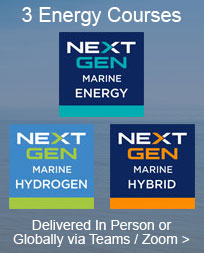John Haynes - Managing Director, Shock Mitigation
John is an Associate Fellow of The Nautical Institute, Fellow of RINA, Commercial Yachtmaster Ocean and Advanced Powerboat Instructor. Subject matter expertise includes 30 years professional sector training, consultancy and strategic product development. He has worked with over 100 organisations including military, SAR, police, commercial operators, designers, OEM equipment manufacturers and boat builders.
He has chaired a broad range of maritime conferences and workshops. Technical papers and specialist articles on future requirements and new technology for international publications include Ship & Boat International (RINA), Defence IQ, Maritime Reporter, Marine Link, Marine News, Maritime Journal, Seaways, Maritime Pilot Journal, Powerboat & RIB, Yachting Matters (Superyacht), Ship & Offshore.
He is founder of the RIB & HSC (High Speed Craft) which brings together specialist craft, equipment and knowledge for professional maritime operators in the sub IMO / sub 24m sector worldwide. At Seawork 2016 he was voted Maritime Professional of the Year.
Global Perspective on Shock Mitigation and the Reality at Sea Level
A challenge for the builders of next generation RIBs and high speed craft is delivering platforms that balance high performance with the physical demands on crew and passengers. With the arrival of ‘unbreakable boats’ plus a surplus of engine power ‘man’ is often considered the weakest link. When taking a holistic approach to reducing injury, operators need to consider lessons learned by other sectors including coxswain training, managing time and speed expectations for different types of vessels and improved passage planning. This presentation examines how groups around the world are taking different approaches, and how these efforts can be utilized by real people on a daily basis at sea.
EU and UK Vibration Directives recognise that fast boats can be a high risk means of transport. RS & WBV (Repeated Shock & Whole Body Vibration) can be damaging to boat crews and their passengers. Acute and chronic injuries include lower back and knee injuries. The definition of shock mitigation is, 'to make a violent collision or impact less intense'. A shock mitigation strategy is essential for all craft that undertake open sea transits or operate in rough water. This includes rivers and estuaries with wind against tide conditions which form short, steep waves.
In recent years, academic and industry focus has mainly been on developing mechanical suspension seats to reduce the effects of vertical accelerations when seated. Hard decks can be an issue when people stand in one place. Even with high performance seating installed, people need to walk around the vessel to carry out onboard tasks or to embark. To reduce fatigue, cushion decking materials can also be used when leaning posts or jockey style seating have feet on deck. Other areas requiring attention include fore-aft, lateral and vector forces, plus improving seat cushion performance and comfort for lower speed vessels.
Download NEXT GEN Workshops April 2019 Presentation (password required)











